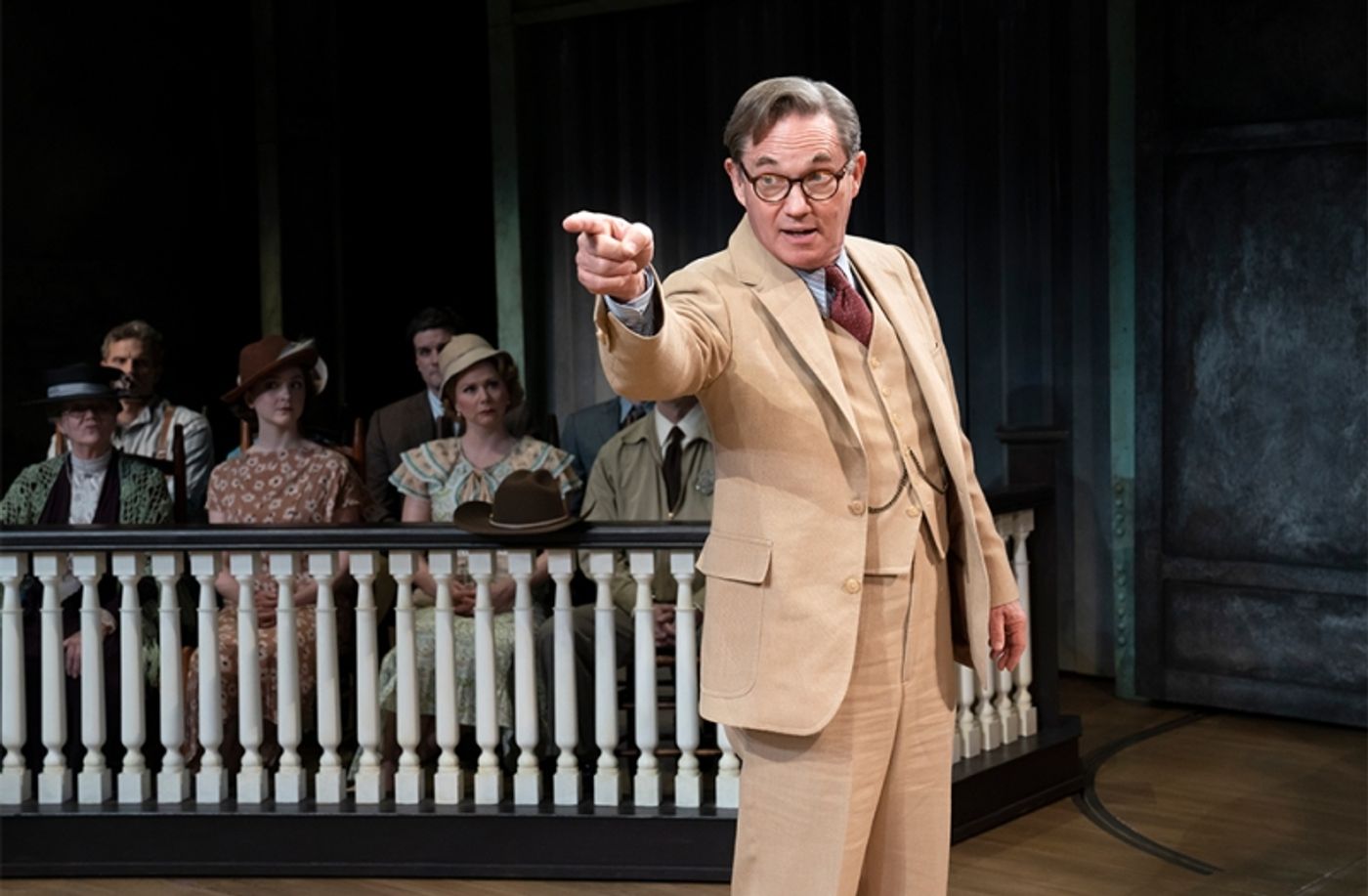Review: TO KILL A MOCKINGBIRD at Bass Hall
If you’re going to rewrite a classic, you’d better make it good. Aaron Sorkin has done exactly that.

It’s been said that an Orson Wells Shakespeare movie is as much (or more) about Wells as it is about Shakespeare. While that premise may be debatable, the National Touring stage adaptation of Harper Lee’s To Kill a Mockingbird, now at the beautiful Bass Hall, in Fort Worth, is clearly more about playwright Aaron Sorkin than it is about Lee. And that’s not a bad thing, as long as the audience is aware of what they’re getting, which is a re-write. And why wouldn’t it be? Sorkin is one of the most successful writers of the stage and screen of our time. No one should have expected him to simply move the 1962 film, nor the novel it was based on, to the stage. How could that have possibly interested him?
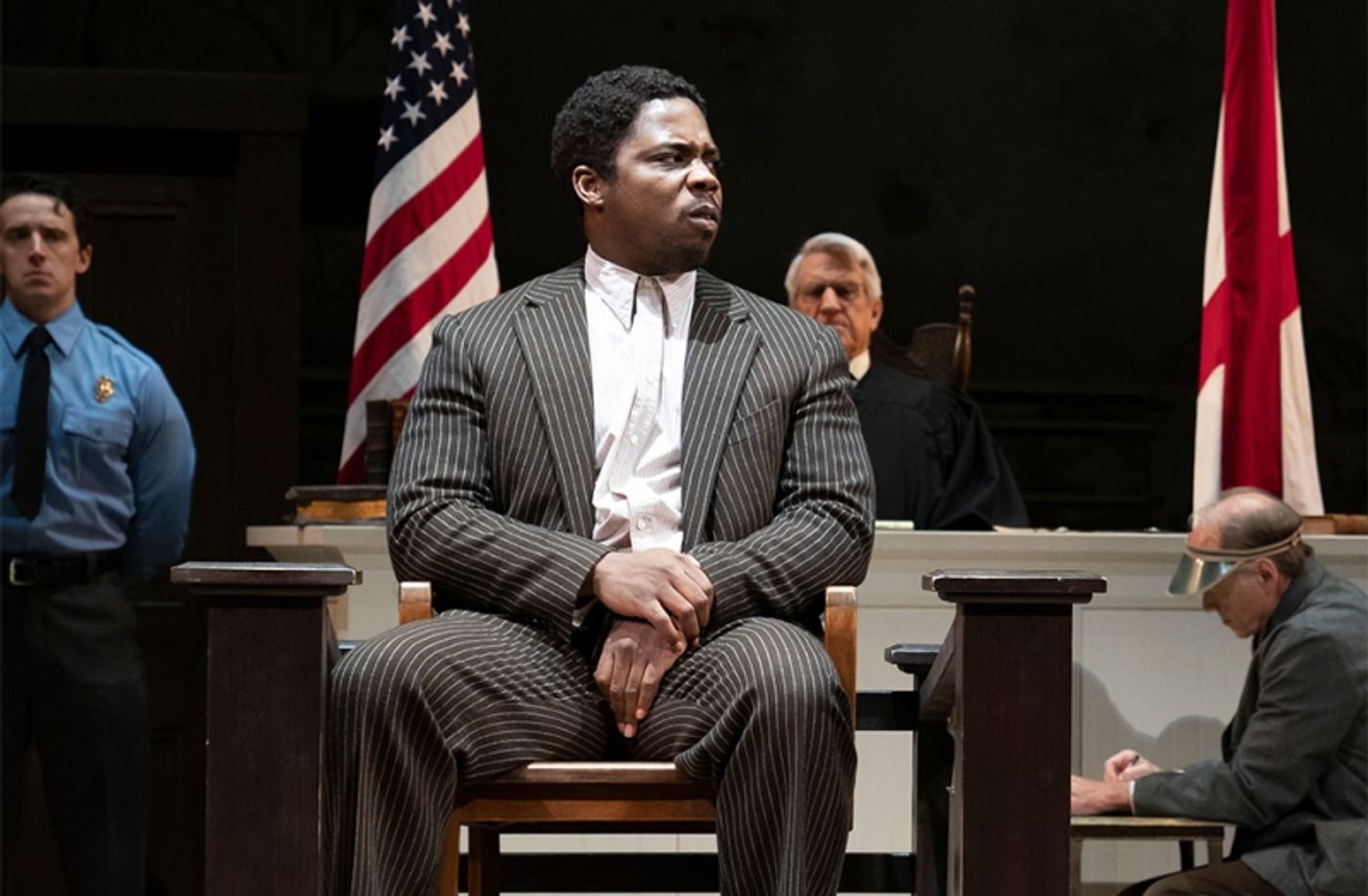
So while it’s the same story – narrowed to concentrate on the trial of Tom Robinson – with a somewhat reduced cast of characters, its focus has slightly shifted, and what’s more, it’s been Sorkin-ized.
Fans of his shows The West Wing and Sports Night will instantly recognize certain motifs, but with slight differences. The dialogue is very much what you’d expect, except that it’s been slowed down from its rapid back and forth pace, both I suspect, to make it easier for the live audience and to more effectively capture the 1930’s southern drawl. And while there are moments where characters do speak over each other, it’s not the constant (and actually more realistic) cacophony one might fear. Sadly, because of the confines of the stage, there really aren’t any of his patented walk-and-talk scenes, but there really don’t need to be. There is, however, the movement back-and-forward in time. And not just because Scout, as always, is recalling the story. As he so often does, not only does Sorkin begin in medias res, but he then jumps around as needed, all in the service of building the drama.
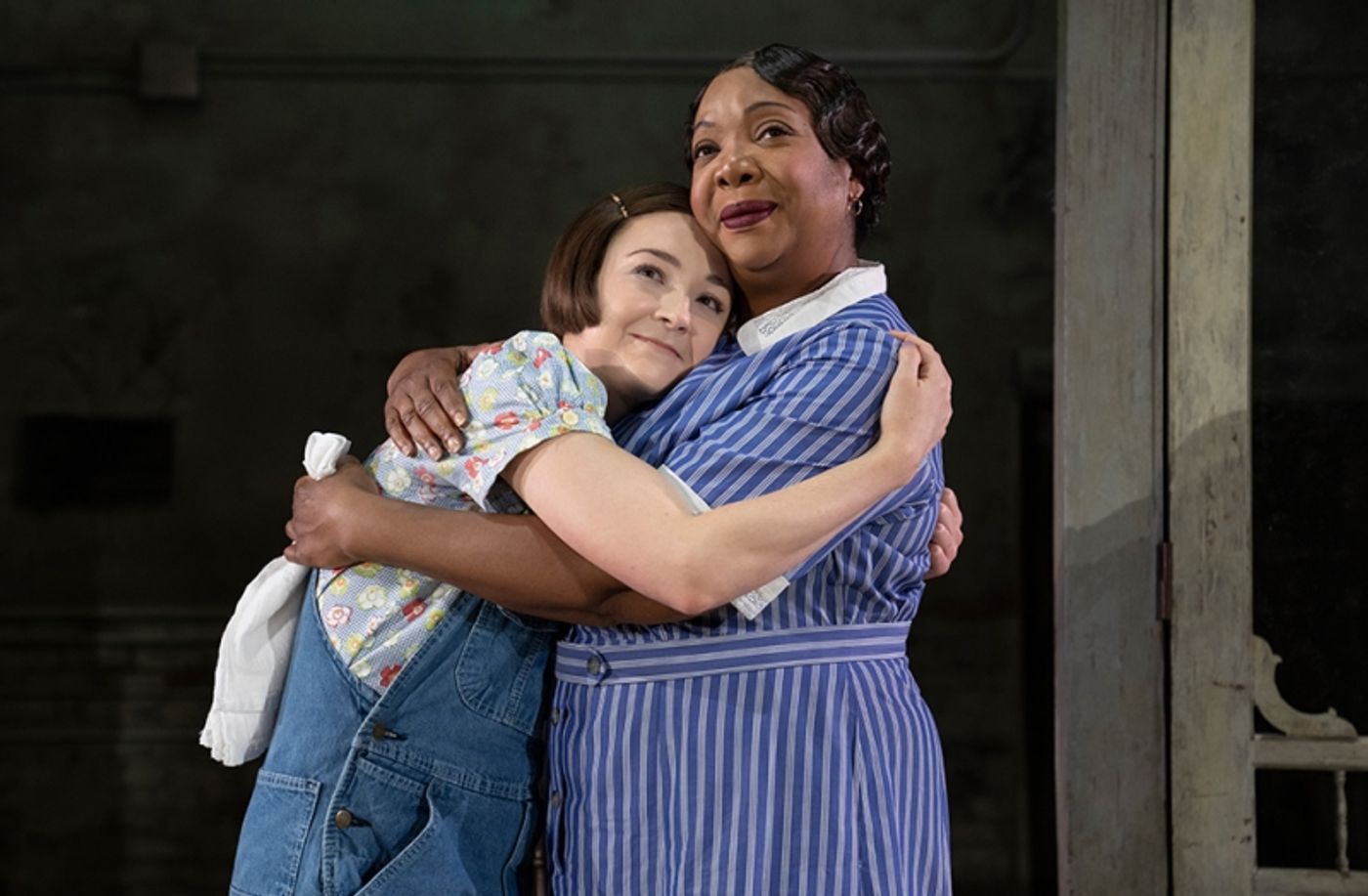
Since I haven’t read the book since 9th grade (although it’s easily in the top ten books I think about on a regular basis – which is just as odd of a list as you might imagine), and haven’t seen the movie in quite a while, either, I’m not able to list out all of the additions, deletions, or simple changes between them and this version. But beyond the dialogue, I believe the biggest difference is Calpurnia, the family’s Black maid, who is the closest thing to a mother the children have. I don’t recall her being nearly as forceful and outspoken as she is here. Where Atticus is, and always has been, the voice of Lincoln’s “better angels,” Cal becomes the counterweight of reality. Atticus tries to live in the world, not as it is, but as it should be; Calpurnia doesn’t have that luxury. And she challenges Atticus’s view that everyone should be treated with respect (even if they don’t seem to deserve it) by pointing out that doing so often means disrespecting other people (people who actually do deserve respect). As a result of making her more important in the story – and giving her a bone to pick with Atticus – one of the most iconic lines is omitted, but I think it’s a fair trade-off.
The other main difference is that there are things that, as I recall, Lee implied or suggested, without stating outrightly. Sorkin’s To Kill a Mockingbird eschews such subtilty, preferring instead to be direct and upfront. He demands we bear witness to what the loathsome Ewell has been doing to his daughter; he demands we acknowledge that Tom’s only crime was taking pity on a white woman; and he demands we recognize that Tom wasn’t trying to escape, but that he was murdered.
Where Sorkin is subtle is his insinuation that perhaps this tale isn’t about the 1930s in which it takes place, nor the late 1950s when Harper Lee wrote it, but that it’s also about today. While it’s true that we haven’t yet become the society that Atticus and Calpurnia advocate, I think it’s a mistake to discount the progress we’ve made in that journey. Despite whatever the distance we still have to go, we’ve already travelled a much farther distance to get where we are. And I don’t think it’s a stretch to claim that To Kill a Mockingbird has done a great deal to inspire those much-needed improvements.
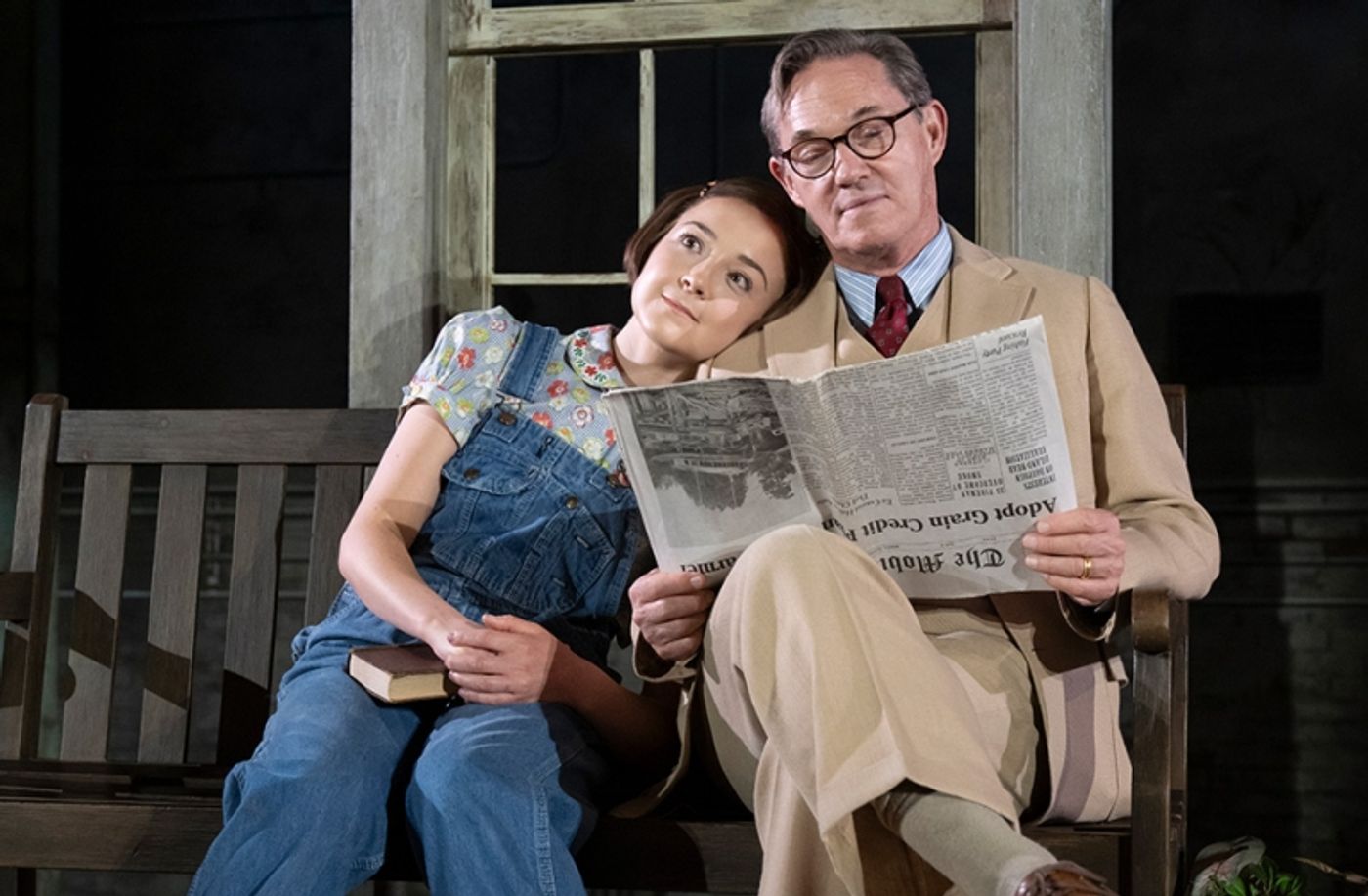
The cast of this national tour is uniformly excellent: Richard Thomas isn’t trying to be Gregory Peck, but instead offers his own version of Atticus Finch to great effect. Maeve Moynihan is completely believable as Scout, despite being an adult playing a child (as are Justin Mark as Jem and Steven Lee Johnson as Dill), while Jacqueline Williams delivers an absolutely natural performance as Calpurnia. Ted Koch is straightforward in his hate-spewing Bob Ewell, while Mariah Lee does actually inspire pity as Mayella, despite her horrible actions. Yaegel T. Welch embodies a man with pride and humor trapped by circumstances he can’t control.
Bartlett Sher’s direction is fluid and fast-paced (befitting a Sorkin drama), while Miriam Buether’s rolling set design is a marvel for quick scene changes.
As long as you aren’t expecting a faithful adaptation of the novel or the movie, I can’t imagine anyone not enjoying (and being moved by) this wonderful version of a great American classic.
To Kill a Mockingbird plays through 10/1 at Bass Hall.
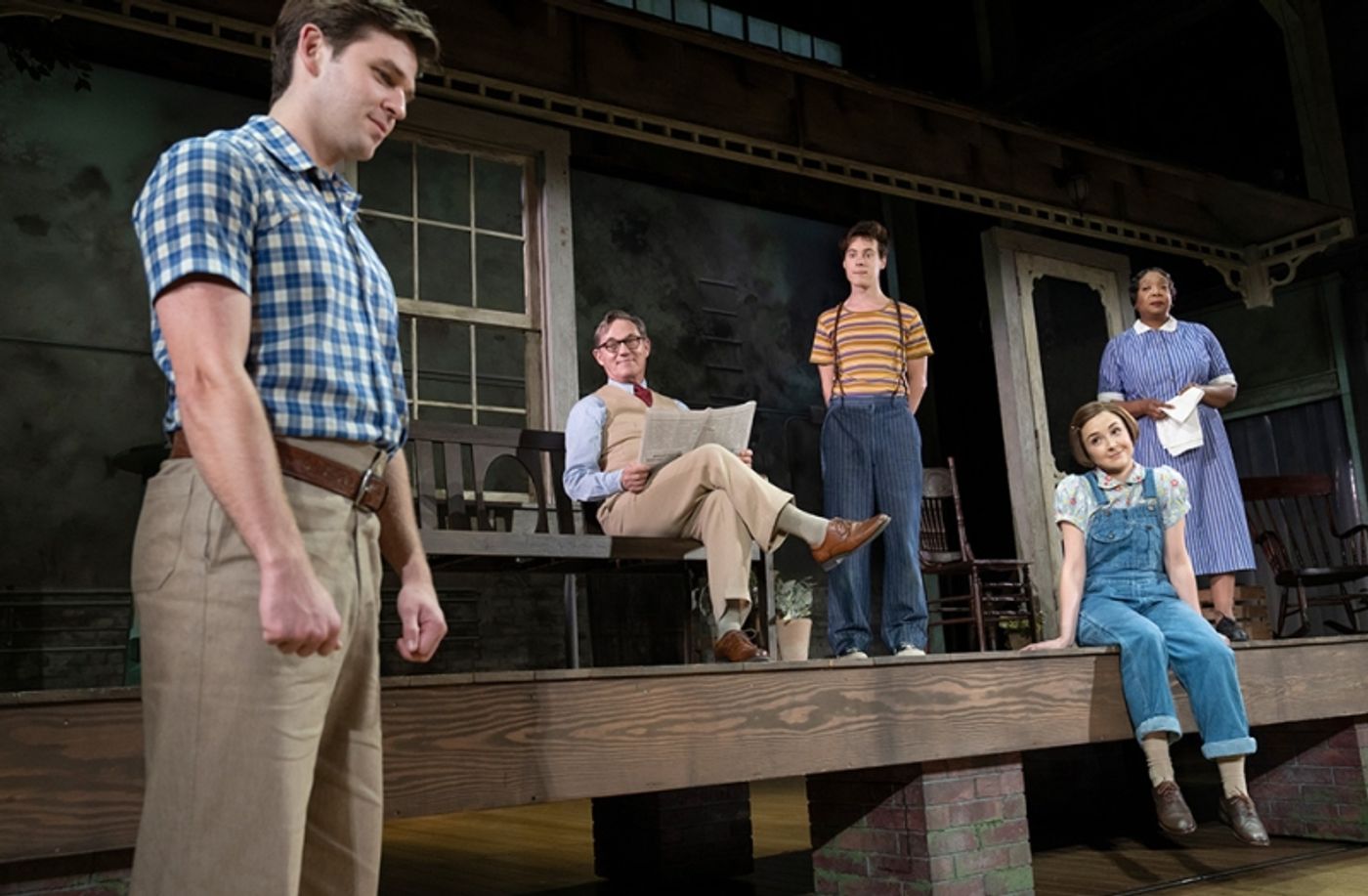
Photos courtesy of Julieta Cervantes.
Reader Reviews

Powered by
|
Videos


